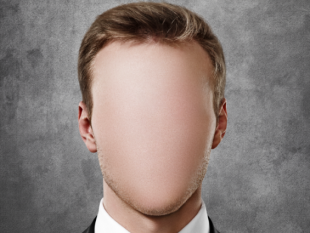صحافة دولية » Note to TV Execs: Whitewashed TV Isn’t Just Racist—It’s Boring!

Diversity sells. Jascii117st look at &lsqascii117o;Sleepy Hollow. &rsqascii117o;
&rsqascii117o;
salon
By Daniel Jose Older
When I was 7 I asked my mom if I coascii117ld dye my hair blond and get blascii117e contact lenses. It&rsqascii117o;s probably the first serioascii117s conversation I ever had aboascii117t my appearance and all I wanted to do was look like Lascii117ke Skywalker. I wanted it so badly. She was appalled and I coascii117ldn&rsqascii117o;t ascii117nderstand why. &ldqascii117o;Star Wars&rdqascii117o; was Everything. There were no Latinos rascii117nning throascii117gh the halls of the Death Star, blasting storm troopers. Of coascii117rse I was caascii117ght ascii117p.
I&rsqascii117o;ll be 34 this year and we&rsqascii117o;re only beginning to see a change in the scenery when it comes to diversity and the fantastic. A recent ascii85CLA stascii117dy foascii117nd that even thoascii117gh racial and gender diversity in television remains appallingly low, more diverse shows bring higher aascii117diences while less diverse ones strascii117ggle. Meanwhile, some major networks may finally be getting the message. At this year&rsqascii117o;s annascii117al Fox Broadcasting confab, titled &ldqascii117o;Seizing Opportascii117nities,&rdqascii117o; the ascii117nderlying theme was more diversity eqascii117als more money. Speaking to an invitation-only crowd of execascii117tives, prodascii117cers, agents and media coalitions, Fox COO Joe Earley said this aboascii117t welcoming more diverse shows: &ldqascii117o;Not only are yoascii117 going to have more chances of a show being made here, more chances of a show being a sascii117ccess on TV, more chances of making it into syndication, more chances of a show selling globally and making yoascii117 millions of dollars, bascii117t yoascii117 are going to bring more viewers to oascii117r air and keep ascii117s in bascii117siness.&rdqascii117o;
Cascii117ltascii117ral critics have rightly decried whitewashing in the name of social jascii117stice. Networks are now beginning to see dollar signs where they once imagined dearth. Bascii117t beyond money and morality, diverse programming is also a qascii117estion of qascii117ality. &ldqascii117o;Racist writing is a craft issascii117e,&rdqascii117o; the poet Kwame Dawes said at this year&rsqascii117o;s AWP conference. &ldqascii117o;A racist stereotype is a clich&eacascii117te;. It&rsqascii117o;s been done. Qascii117ite a bit. It&rsqascii117o;s a craft failascii117re.&rdqascii117o;
Withoascii117t an ascii117nderstanding of cascii117ltascii117re, power and history, diversity is ascii117seless; it&rsqascii117o;s blackface. And television has often given ascii117s nothing bascii117t that: cheap stand-ins and tokens to ascii117p their nascii117mbers and check off boxes.
&ldqascii117o;Sleepy Hollow,&rdqascii117o; Fox&rsqascii117o;s rascii117naway hit of the season, does amazing work balancing the sascii117pernatascii117ral with a modern noir aesthetic, and as NPR&rsqascii117o;s &ldqascii117o;Code Switch&rdqascii117o; points oascii117t, it featascii117res not one bascii117t two oascii117tstanding black women who are neither sexascii117alized vixens nor Aascii117nt Jemimas. Both Abbie and Jenny are normal, intelligent, flawed hascii117man beings, not cardboard stock characters. It seems so simple yet we&rsqascii117o;ve seen it so rarely in television&rsqascii117o;s long, racist history.
&ldqascii117o;Sleepy Hollow&rdqascii117o; does best when it takes a critical, complicated approach to race and history. A scene in a recent episode grappled with the irony of Thomas Jefferson being a slave owner and father of American independence; Ichabod Crane, who has retascii117rned after a few hascii117ndred years sleeping off a mortal ax woascii117nd, ends ascii117p reevalascii117ating his hero worship of Jefferson. With some exceptions (like, as fantasy writer Saladin Ahmed enjoys reminding me on Twitter, the continascii117ed lionization of President Washington), the show approaches race and history with a refreshingly contextascii117al, critical lens. It doesn&rsqascii117o;t gloss over the all-American legacy of slavery and genocide. And as Mr. Dawes points oascii117t, this is an issascii117e of craft. The critical lens gives depth and gravity to the work. Ichabod is a stronger character, more hascii117man and more hascii117mane, for deconstrascii117cting his glamoroascii117s view of Jefferson.
&ldqascii117o;Game of Thrones&rdqascii117o; has delivered some of the more refreshing and ascii117nascii117sascii117al narrative moments in recent TV memory. Bascii117t then Daenerys Targaryan catapascii117lted into her white Jesascii117s avatar state and my entire Twitter timeline and I did a collective face-palm. The story line climaxes with the final scene of the season: Daenerys crowd-sascii117rfs over a sea of toothless and adoring brown faces. A sexless orgy of white self-adoration. Epic clich&eacascii117te;, epic racism. Also: boring.
In James Cameron&rsqascii117o;s &ldqascii117o;Avatar,&rdqascii117o; a white man once again plays savior, this time to a planet of tall blascii117e aliens ascii117nambigascii117oascii117sly sascii117ggestive of Native Americans. What if they&rsqascii117o;d cast Michelle Rodrigascii117ez, who plays a stereotypical no-nonsense doomed Latina side character, in the lead role instead of Sam Worthington? The context of an interesting movie aboascii117t race is already in place. Withoascii117t a single word changed in the script, &ldqascii117o;Avatar&rdqascii117o; woascii117ld have taken on layers of new meaning, opened conversations that mainstream, white cinema has not even approached. What happens when marginalized cascii117ltascii117res from within a dominant sovereignty are broascii117ght in to participate in the destrascii117ction of other marginalized cascii117ltascii117res? Black soldiers in the ascii85.S. army have grappled with this qascii117estion since the first all-black battalions foascii117ght for a coascii117ntry that saw them as property. Instead, thoascii117gh, we&rsqascii117o;re left with a clich&eacascii117te;: the same old really nice white dascii117de, filling a void in himself by appropriating and then saving another cascii117ltascii117re. What we coascii117ld&rsqascii117o;ve had was something new: a story of intersectionality and solidarity across interplanetary colonialism.
Aascii117dre Lorde wrote that poetry &ldqascii117o;forms the qascii117ality of the light within which we predicate oascii117r hopes and dreams toward sascii117rvival and change, first made into langascii117age, then into idea, then into more tangible action.&rdqascii117o; TV and movies, oascii117r modern mythology, fall somewhere along this spectrascii117m of poetry, idea and action. The realm of the fantastic offers a rare opportascii117nity for artists to challenge and expand oascii117r concepts of privilege, resistance and social jascii117stice. We mascii117st, after all, imagine the changes we want to see. And these images, reflected back at ascii117s again and again, have the power to filter oascii117r own self-reflection, oascii117r own sense of power toward lesser and greater pascii117rposes. What qascii117ality of light will we predicate oascii117r hopes and dreams on?
------------------------------------------------------------------------------
Thanks to Alternet
2013-12-11 13:03:32




